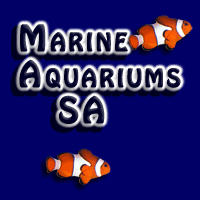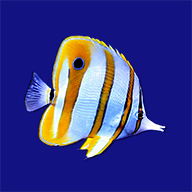I have a reef tank with 2-3 ppm nitrates and 0.2 ppm phosphate yet growth of algae on the glass is negligable even a week after scraping the glass. there are lots of collunista and stomaletta snails in the tank and they are probably doing some of the control, but even chaeto won't grow under these conditions. So I thought there might be an iron limiting situation.
I found the reciper from Holmes-Farely for Fe(II) citrate dosing solution. Seems reasonable to try.
But, also reading on line looking at the Dutch synthetic reefing system, I noticed that system doses iron to reduce phosphates. This makes some sense since GFO (granular Ferric oxide) is used to reduce phosphates. But R F-H iron is an Fe(II) iron, and ferric oxide is an Fe(III) compound.
So my question is can dosing iron using Fe(II) citrate be effective in the presence of phosphates, or will it simply precipitate out as some iron phosphate compound and be unavailable for biological usage by our corals and algae.
I also am aware that in general it is difficult to accurate test for the level of iron in our tanks. (and I don't have an iron test.). So looking for the experience of others with regards to this matter.
I found the reciper from Holmes-Farely for Fe(II) citrate dosing solution. Seems reasonable to try.
But, also reading on line looking at the Dutch synthetic reefing system, I noticed that system doses iron to reduce phosphates. This makes some sense since GFO (granular Ferric oxide) is used to reduce phosphates. But R F-H iron is an Fe(II) iron, and ferric oxide is an Fe(III) compound.
So my question is can dosing iron using Fe(II) citrate be effective in the presence of phosphates, or will it simply precipitate out as some iron phosphate compound and be unavailable for biological usage by our corals and algae.
I also am aware that in general it is difficult to accurate test for the level of iron in our tanks. (and I don't have an iron test.). So looking for the experience of others with regards to this matter.




















